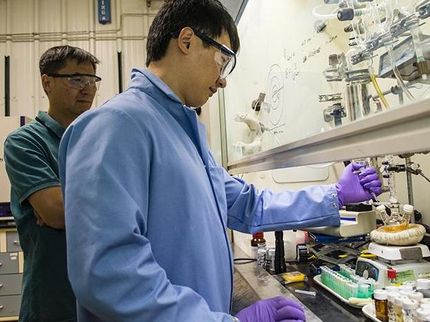Advanced materials optimization increases the lifetime for fiber lasers
Advertisement
Researchers have found new methods for optimizing glass in order to increase the lifetime of fiber lasers. The trend is to produce fiber lasers with higher output powers, which places great demands on the optical fiber. This has been shown at Mid Sweden University in Sweden.
The interest in fiber lasers has increased dramatically in the last decade. The main driving force is coming from the industry, where these lasers are used for different kinds of materials processing such as cutting, drilling, and welding. The fiber laser offers many advantages compared with conventional lasers in terms of better beam quality, lower prices, and a more compact design. However, it turns out that the glass material in the optical fiber looses its transparency with time, a phenomenon called "photodarkening". This effect considerably shortens the operational lifetime of the fiber laser.
"This is primarily a concern at high output levels associated with applications using a pulsed laser configuration," says Magnus Engholm, a doctoral candidate in fiber optics. One example of such applications is marking, where part of the surface material has to be burnt off from the object to be marked.
Fortunately the glass material can be optimized to extend the lifetime of these lasers. By choosing a proper composition and optimizing the synthesis conditions, scientists can now attain higher output powers and longer lifetimes. This will also open up for new areas of industrial application.
This research has been carried out collaboratively by Mid Sweden University and Acreo FiberLab.
Other news from the department science
Most read news
More news from our other portals
See the theme worlds for related content
Topic world Synthesis
Chemical synthesis is at the heart of modern chemistry and enables the targeted production of molecules with specific properties. By combining starting materials in defined reaction conditions, chemists can create a wide range of compounds, from simple molecules to complex active ingredients.

Topic world Synthesis
Chemical synthesis is at the heart of modern chemistry and enables the targeted production of molecules with specific properties. By combining starting materials in defined reaction conditions, chemists can create a wide range of compounds, from simple molecules to complex active ingredients.





























































